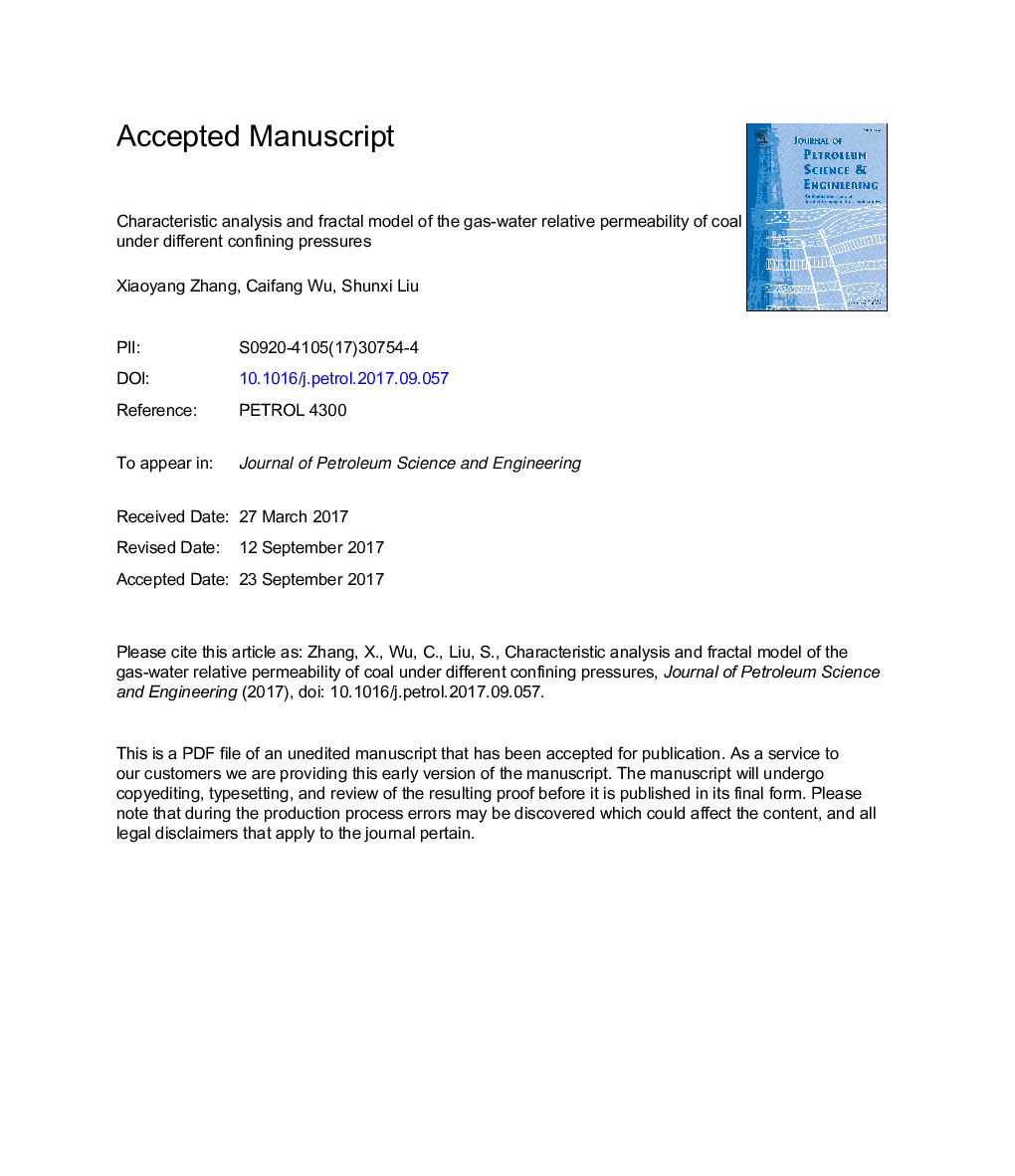| Article ID | Journal | Published Year | Pages | File Type |
|---|---|---|---|---|
| 5483879 | Journal of Petroleum Science and Engineering | 2017 | 23 Pages |
Abstract
Gas-water relative permeability is crucial to the evaluation of coal reservoirs by numerical simulation and to the dynamic prediction of flow rates. Gas-water relative permeability experiments using the unsteady-state method determined that the gas permeability, liquid permeability and gas permeability under irreducible water conditions had a negative exponential relationship with the increase of the confining pressure. The gas-water relative permeability curves had significant differences under different confining pressures. With the increase of the confining pressure, the relative permeability of the water obviously decreased, whereas the relative permeability of the gas showed an increasing trend to some degree and the relative permeability ratio krg/krw increased when the water saturation was less than 80%. These results indicate that an increase of confining pressure has less influence on gas relative permeability than it has on water relative permeability. Based on the experimental data from mercury intrusion porosimetry and low-temperature nitrogen adsorption, the fractal dimension was obtained after performing a compressibility correction of the mercury intrusion volume. The small fractal dimension found indicates that the pore-fracture system of coal has a strong self-similarity. An improved fractal model was proposed to fit the gas-water permeability under different confining pressures, and the modeling results were well correlated with the experimental data of the unsteady-state method.
Related Topics
Physical Sciences and Engineering
Earth and Planetary Sciences
Economic Geology
Authors
Xiaoyang Zhang, Caifang Wu, Shunxi Liu,
